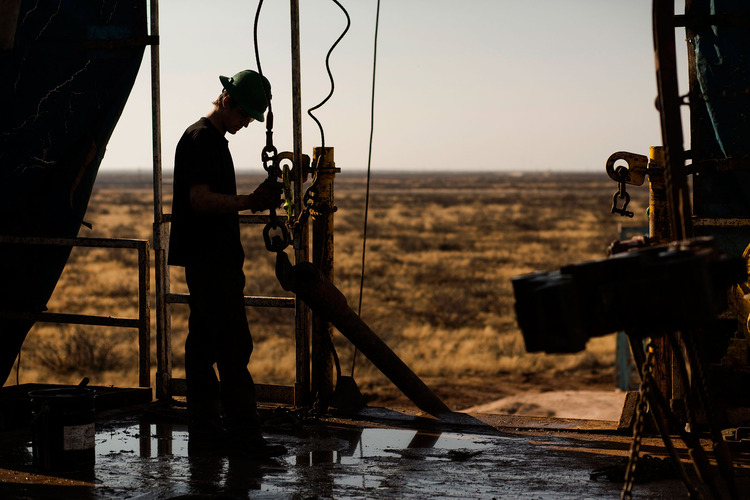- Lagos Oilfield Dispute Worsens, Another Investor Heads for Court
The dispute among joint venture partners in Aje oil field, offshore Lagos, appears to have escalated as another partner, EER (Colobus) Nigeria Limited, has gone to court.
One of the partners, Panoro Energy, announced in December that it was in disagreement with its JV partners over cash call and intended to initiate arbitration and legal proceedings to protect its interests.
The company holds 6.502 per cent participation interest in Oil Mining Lease 113, where the Aje field is located, through its subsidiary, Pan Petroleum Aje Limited.
The commercial court division of the High Court in London granted the PPAL an interim injunction, restricting the JV partners from taking any action under the default provisions of the Joint Operating Agreement that would prevent the PPAL’s continued participation in the JOA and OML 113.
Panoro Energy said in a new update that the EER (Colobus) Nigeria applied for and, on July 13, 2017, was granted an order by the Federal High Court of Nigeria, adding that the court set the time to hear the motion on notice as July 24, 2017.
It said, “It is Panoro’s understanding that the EER, like Pan Petroleum, is in default of certain of its cash calls under the JOA and, therefore, the court’s order restrains any of the non-defaulting joint venture partners from issuing a notice under the JOA requiring the EER and, perhaps Pan Petroleum, to withdraw from and transfer all its interests and rights in the OML 113 and the JOA to all the non-defaulting parties.”
According to the company, under the JOA, the potential consequence of a JV partner not making payment of its share of a cash call on or before the expiry of the 45-day grace period is that two or more of the other JV partners, who are not themselves in default and represent a majority of the interests not in default, have the option to require the defaulting party to withdraw from the OML 113 and the JOA by issuing a notice of withdrawal.
“However, any such action may currently be prevented by the Nigerian injunction referred to above,” Panoro said.
It said, “Should Pan Petroleum in future be issued with a withdrawal notice, it will vigorously dispute its forced withdrawal from the OML 113 and the JOA, and will explore all legal and diplomatic avenues to ensure the notice is withdrawn or the withdrawal is held to be unenforceable.
“Although Panoro has sufficient funds available, Pan Petroleum has at this time not paid its share of certain cash calls under the JOA. The 45-day grace period permitted under the JOA has now expired and Pan Petroleum continues to be in payment default. Pan Petroleum’s share of these unpaid cash calls currently stands at approximately $6.8m net of crude entitlements.”
Pan Petroleum said many of the cash calls that had been made were made in a manner inconsistent and prohibited by the JOA procedures, adding that an external audit of the JV’s procedures and accounting had been commissioned.
The company said its arbitration proceeding was ongoing, and the arbitral tribunal had recently pushed the timetable for the hearing out, now likely to be heard during the first quarter of 2018.
Yinka Folawiyo Petroleum Company Limited, a wholly owned indigenous firm, is the operator of the OML 113. Other partners are New Age Exploration Nigeria Limited and PR Oil & Gas Nigeria Limited (the holder of MX Oil’s investment in the field).
First oil was achieved on the Aje field in May last year, 20 years after it was discovered.
A London-based energy firm, MX Oil, which has an indirect investment in the OML 113, said on May 24 that production from the Aje-4 well field had stabilised after an initial period of decline associated with rising water cut.
It said the production from the Aje-5 well had been limited and required subsurface intervention, adding that the intervention was in the process of being completed and would include re-connection to the subsea tree.
“To date, the company has completed its share of the payments required to get to this stage of the project’s development,” MX Oil said.
The company said it was previously anticipated that a further well, Aje 6, would be drilled in the short term to increase oil production from the field, but the drilling of the well would be deferred until the partners had concluded on the most appropriate next steps.
It said, “As has previously been announced, the Aje field is believed to hold significant resources of gas. The partnership has been progressing the field development plan for the development of the gas and has also held discussions with various potential gas off-takers.
“The partners in the Aje Field are therefore currently considering whether it would be more appropriate for the next stage of the field development to focus on gas production rather than drilling additional oil wells.
The Chief Executive Officer, MX Oil, Stefan Oliver, said given the potential scale of the gas opportunity versus the risk and reward of drilling additional oil wells, it made sense for the partners to consider and reflect on what the next stage of the development should be.

 Education4 weeks ago
Education4 weeks ago
 News3 weeks ago
News3 weeks ago
 Business3 weeks ago
Business3 weeks ago
 Technology3 weeks ago
Technology3 weeks ago
 Investment4 weeks ago
Investment4 weeks ago
 Investment3 weeks ago
Investment3 weeks ago
 Telecommunications4 weeks ago
Telecommunications4 weeks ago
 Banking Sector3 weeks ago
Banking Sector3 weeks ago






























